Iulian-Marius Tăiatu
Scaling Federated Learning Solutions with Kubernetes for Synthesizing Histopathology Images
Apr 05, 2025Abstract:In the field of deep learning, large architectures often obtain the best performance for many tasks, but also require massive datasets. In the histological domain, tissue images are expensive to obtain and constitute sensitive medical information, raising concerns about data scarcity and privacy. Vision Transformers are state-of-the-art computer vision models that have proven helpful in many tasks, including image classification. In this work, we combine vision Transformers with generative adversarial networks to generate histopathological images related to colorectal cancer and test their quality by augmenting a training dataset, leading to improved classification accuracy. Then, we replicate this performance using the federated learning technique and a realistic Kubernetes setup with multiple nodes, simulating a scenario where the training dataset is split among several hospitals unable to share their information directly due to privacy concerns.
RoLargeSum: A Large Dialect-Aware Romanian News Dataset for Summary, Headline, and Keyword Generation
Dec 15, 2024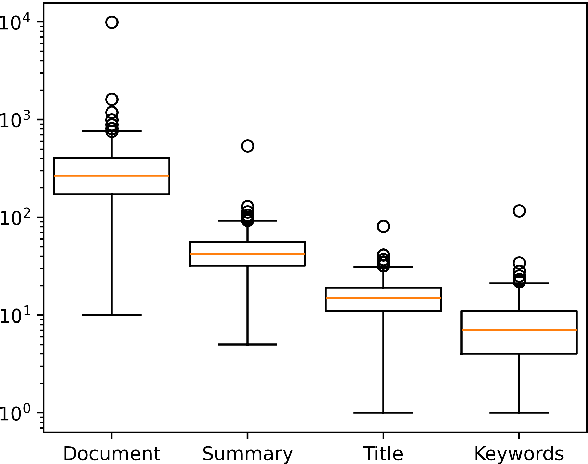
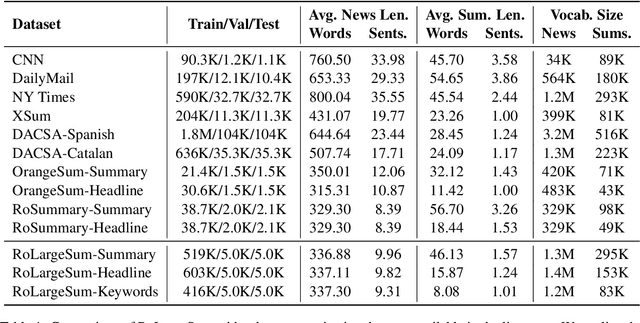
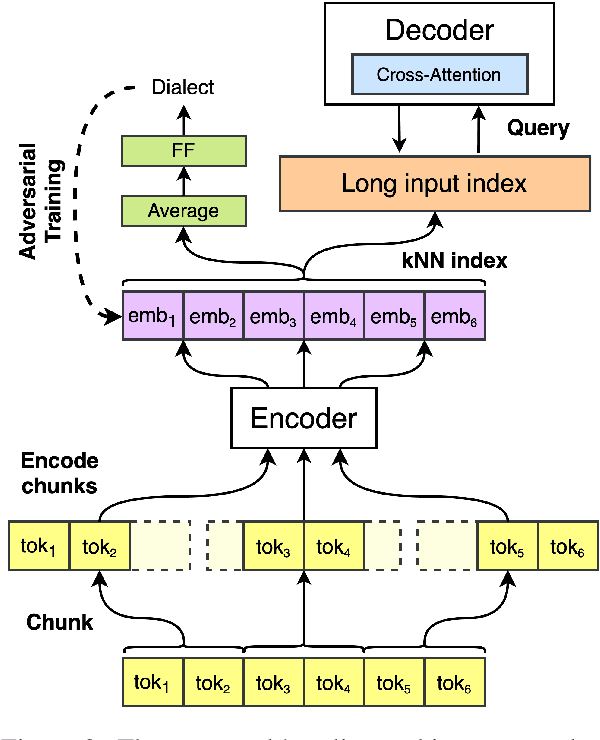
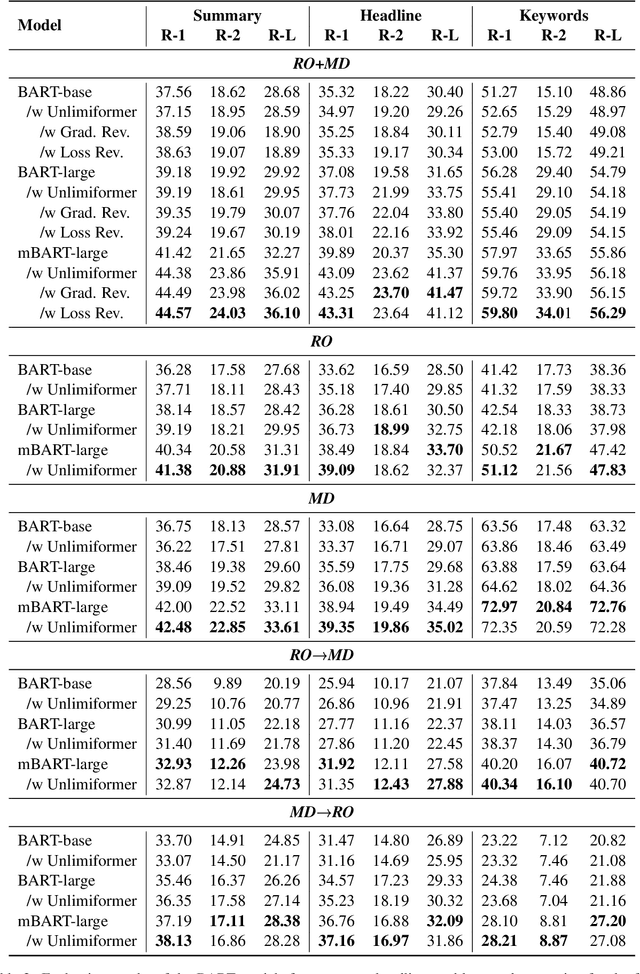
Abstract:Using supervised automatic summarisation methods requires sufficient corpora that include pairs of documents and their summaries. Similarly to many tasks in natural language processing, most of the datasets available for summarization are in English, posing challenges for developing summarization models in other languages. Thus, in this work, we introduce RoLargeSum, a novel large-scale summarization dataset for the Romanian language crawled from various publicly available news websites from Romania and the Republic of Moldova that were thoroughly cleaned to ensure a high-quality standard. RoLargeSum contains more than 615K news articles, together with their summaries, as well as their headlines, keywords, dialect, and other metadata that we found on the targeted websites. We further evaluated the performance of several BART variants and open-source large language models on RoLargeSum for benchmarking purposes. We manually evaluated the results of the best-performing system to gain insight into the potential pitfalls of this data set and future development.
Enhancing Romanian Offensive Language Detection through Knowledge Distillation, Multi-Task Learning, and Data Augmentation
Sep 30, 2024Abstract:This paper highlights the significance of natural language processing (NLP) within artificial intelligence, underscoring its pivotal role in comprehending and modeling human language. Recent advancements in NLP, particularly in conversational bots, have garnered substantial attention and adoption among developers. This paper explores advanced methodologies for attaining smaller and more efficient NLP models. Specifically, we employ three key approaches: (1) training a Transformer-based neural network to detect offensive language, (2) employing data augmentation and knowledge distillation techniques to increase performance, and (3) incorporating multi-task learning with knowledge distillation and teacher annealing using diverse datasets to enhance efficiency. The culmination of these methods has yielded demonstrably improved outcomes.
Evaluating Data Augmentation Techniques for Coffee Leaf Disease Classification
Jan 11, 2024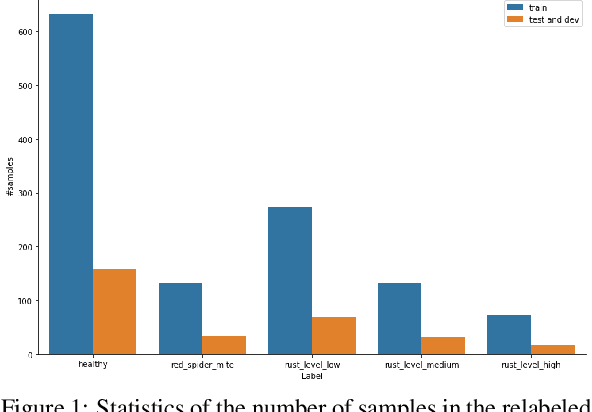
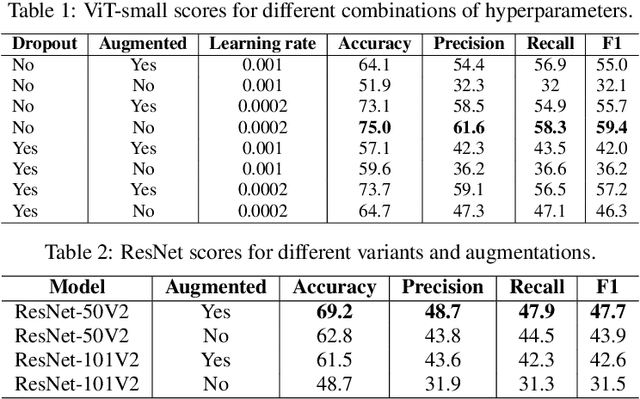
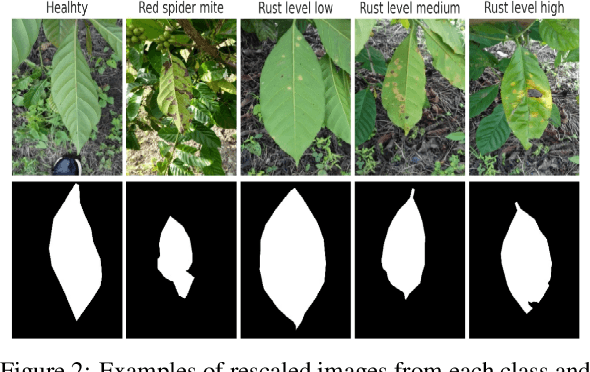
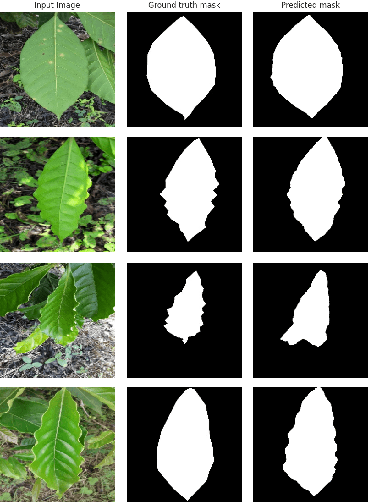
Abstract:The detection and classification of diseases in Robusta coffee leaves are essential to ensure that plants are healthy and the crop yield is kept high. However, this job requires extensive botanical knowledge and much wasted time. Therefore, this task and others similar to it have been extensively researched subjects in image classification. Regarding leaf disease classification, most approaches have used the more popular PlantVillage dataset while completely disregarding other datasets, like the Robusta Coffee Leaf (RoCoLe) dataset. As the RoCoLe dataset is imbalanced and does not have many samples, fine-tuning of pre-trained models and multiple augmentation techniques need to be used. The current paper uses the RoCoLe dataset and approaches based on deep learning for classifying coffee leaf diseases from images, incorporating the pix2pix model for segmentation and cycle-generative adversarial network (CycleGAN) for augmentation. Our study demonstrates the effectiveness of Transformer-based models, online augmentations, and CycleGAN augmentation in improving leaf disease classification. While synthetic data has limitations, it complements real data, enhancing model performance. These findings contribute to developing robust techniques for plant disease detection and classification.
Explainability-Driven Leaf Disease Classification using Adversarial Training and Knowledge Distillation
Dec 30, 2023



Abstract:This work focuses on plant leaf disease classification and explores three crucial aspects: adversarial training, model explainability, and model compression. The models' robustness against adversarial attacks is enhanced through adversarial training, ensuring accurate classification even in the presence of threats. Leveraging explainability techniques, we gain insights into the model's decision-making process, improving trust and transparency. Additionally, we explore model compression techniques to optimize computational efficiency while maintaining classification performance. Through our experiments, we determine that on a benchmark dataset, the robustness can be the price of the classification accuracy with performance reductions of 3%-20% for regular tests and gains of 50%-70% for adversarial attack tests. We also demonstrate that a student model can be 15-25 times more computationally efficient for a slight performance reduction, distilling the knowledge of more complex models.
RoBERTweet: A BERT Language Model for Romanian Tweets
Jun 11, 2023Abstract:Developing natural language processing (NLP) systems for social media analysis remains an important topic in artificial intelligence research. This article introduces RoBERTweet, the first Transformer architecture trained on Romanian tweets. Our RoBERTweet comes in two versions, following the base and large architectures of BERT. The corpus used for pre-training the models represents a novelty for the Romanian NLP community and consists of all tweets collected from 2008 to 2022. Experiments show that RoBERTweet models outperform the previous general-domain Romanian and multilingual language models on three NLP tasks with tweet inputs: emotion detection, sexist language identification, and named entity recognition. We make our models and the newly created corpus of Romanian tweets freely available.
 Add to Chrome
Add to Chrome Add to Firefox
Add to Firefox Add to Edge
Add to Edge